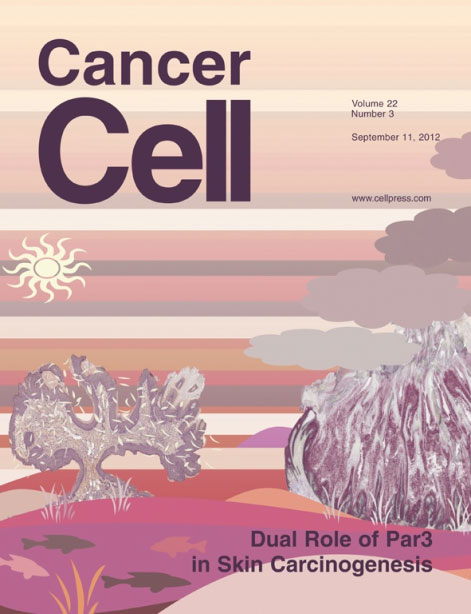Polarity signalling in epithelial cancers
Profound alterations in adhesion and cell polarity are hallmarks of cancer and implicated in tumor growth, invasion and metastasis (Mescher & Iden, 2015). Functional evidence for a role of polarity proteins in cancer, however, is still sparse and largely limited to cultured cells and invertebrate studies.
Non-melanoma skin cancer is among the most common cancers worldwide with a still increasing incidence due to longer life expectancy and sun exposure. Interestingly, the tumor environment plays a decisive role in skin cancer progression. We here asked whether polarity protein dysfunction in mammals affects processes underlying tumorigenesis and metastasis. Our work demonstrated a causal link between mammalian polarity protein dysfunction and the formation and progression of cancer. Loss of epidermal Par3 in a Ras-driven in vivo tumor model resulted in impaired papilloma formation, with increased apoptosis and reduced proliferation, indicating that Par3 mediates its tumor-promoting activity through regulation of growth and survival. Strikingly, however, Par3 mutant mice also displayed predisposition to keratoacanthoma and increased invasiveness. These findings highlighted a context-dependent role of Par3 in epidermal tumors, and strongly challenged the view of cell polarity as a tumor-suppressive entity (Iden et al., 2012). Our follow-up work further identified genetic interactions between Par3 and the Ser/Thr kinase aPKC in these Ras-driven tumors but also independent functions of either protein in distinct stages during tumorigenesis (Vorhagen, Kleefisch et al., 2018).
Moreover, in recent collaborative work with the Hammerschmidt and Humbert labs we found that epithelial polarity defects (caused by loss of Scribble) and hypotonic stress cooperate to induce matriptase-dependent epidermal carcinogenesis (Hatzold et al., 2023 in press).




